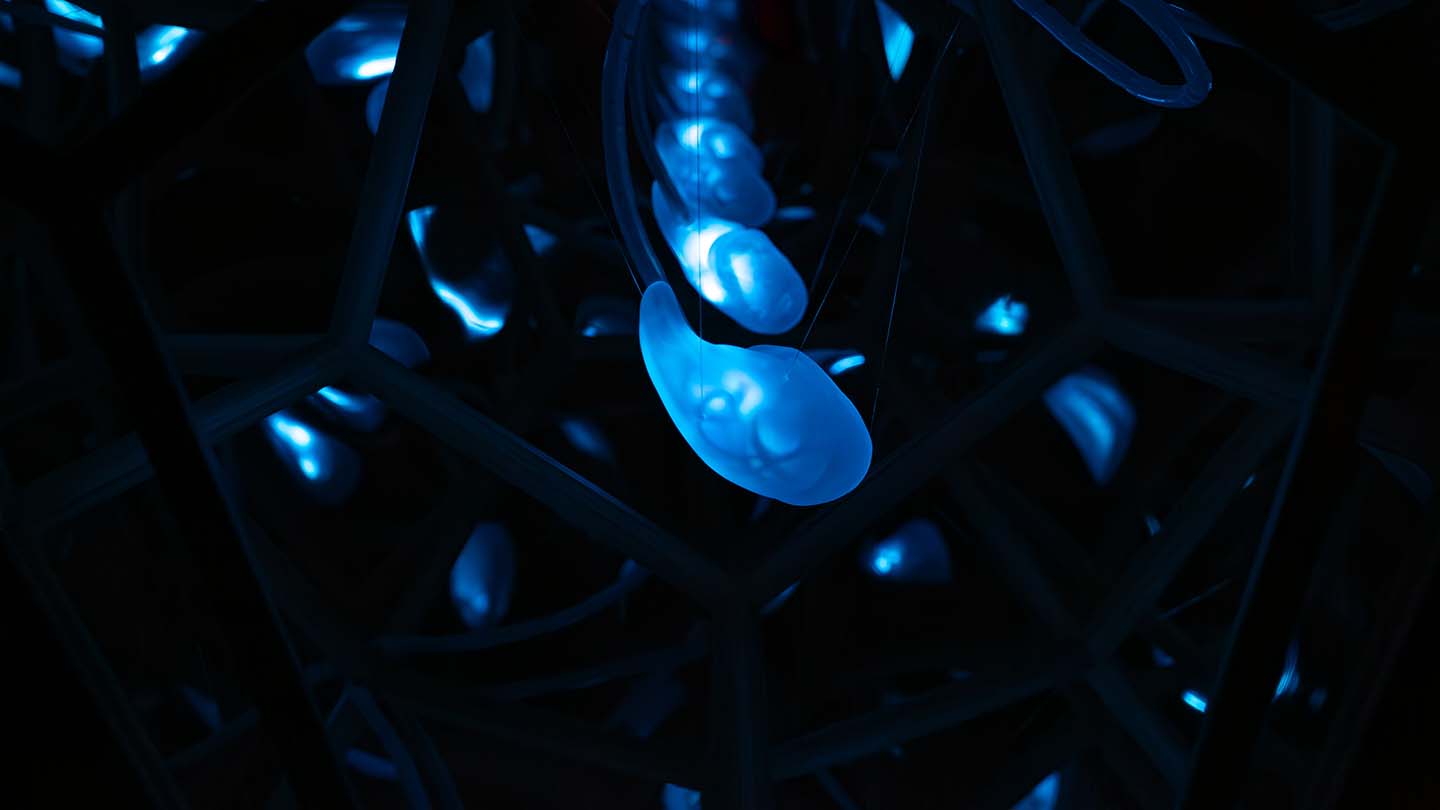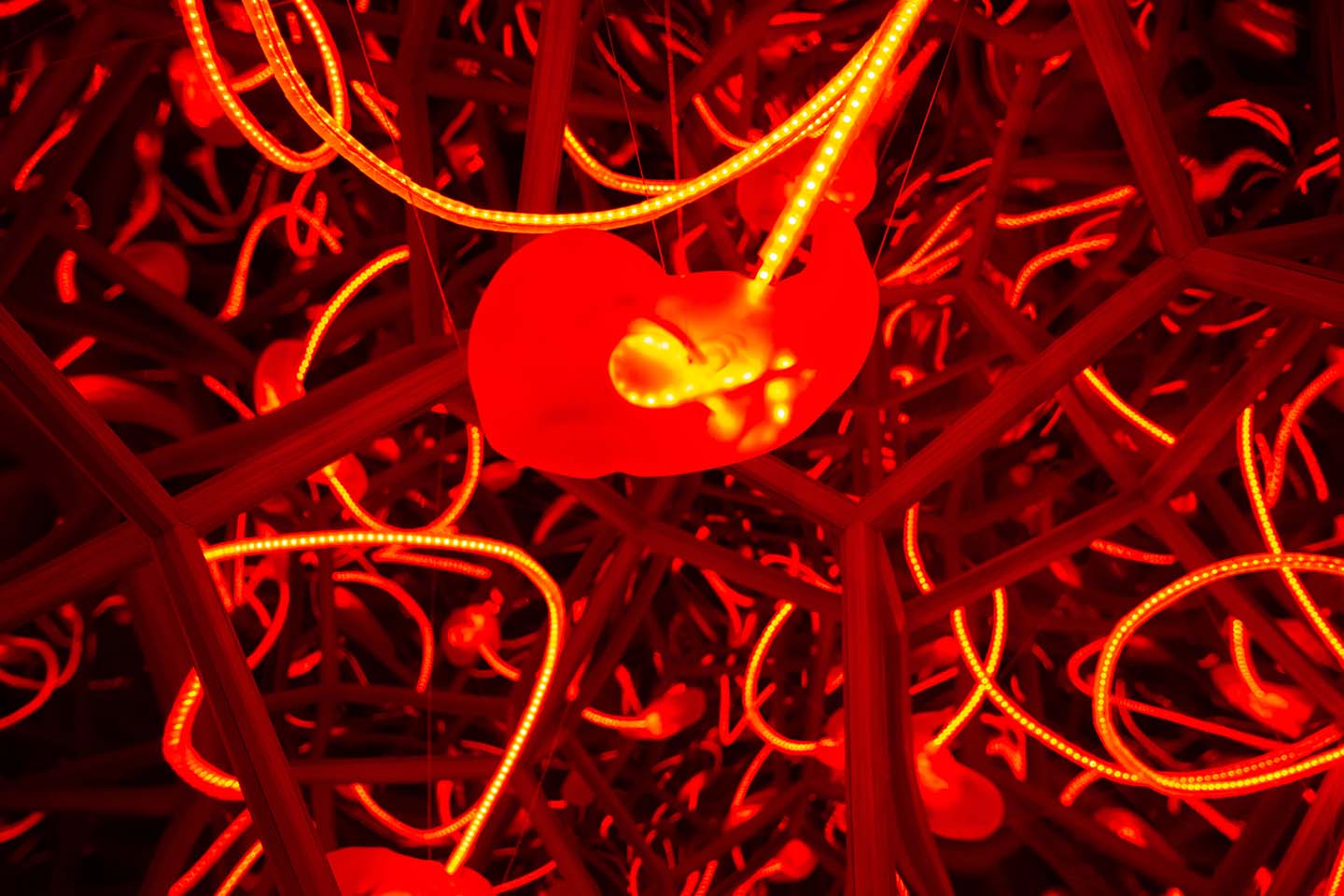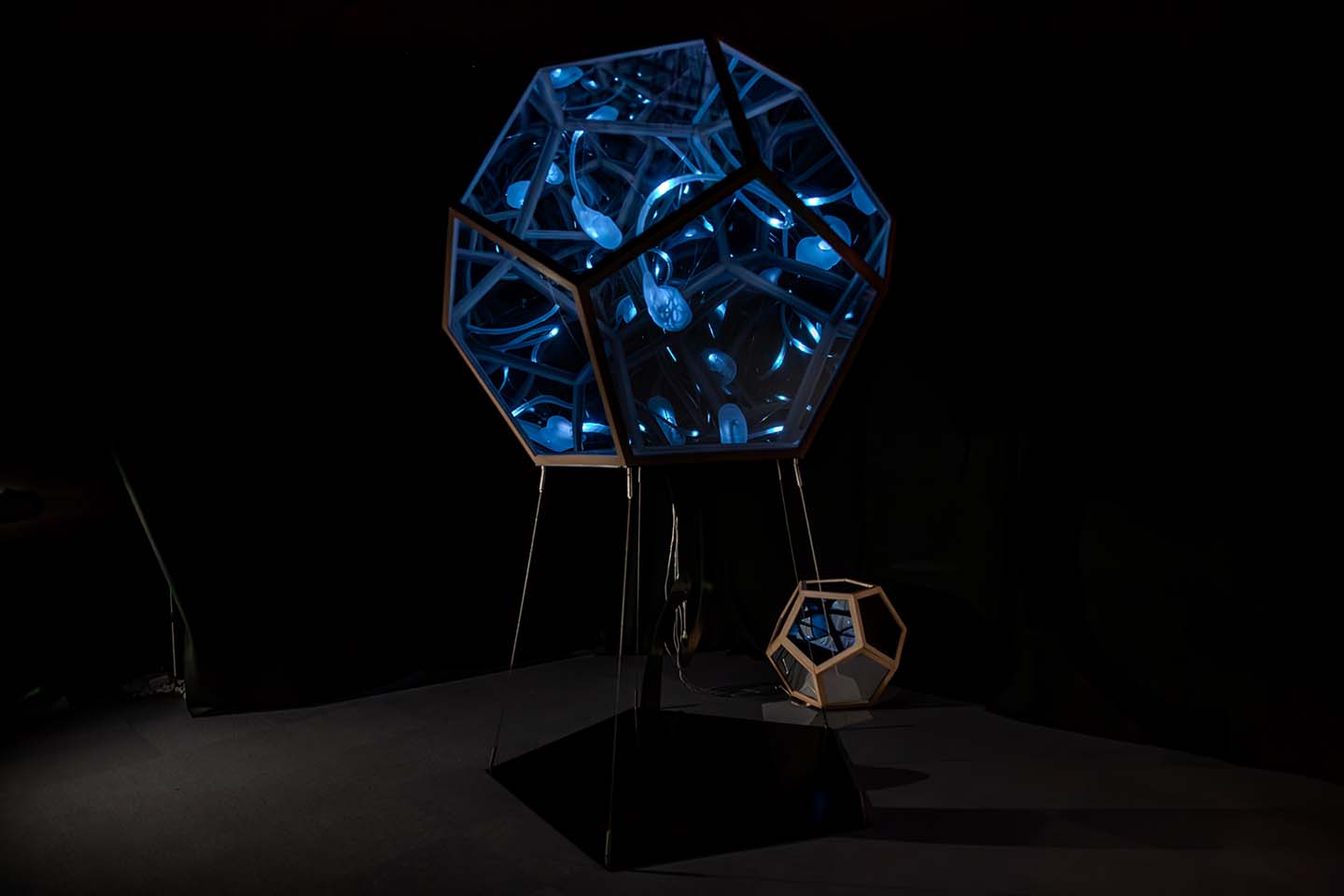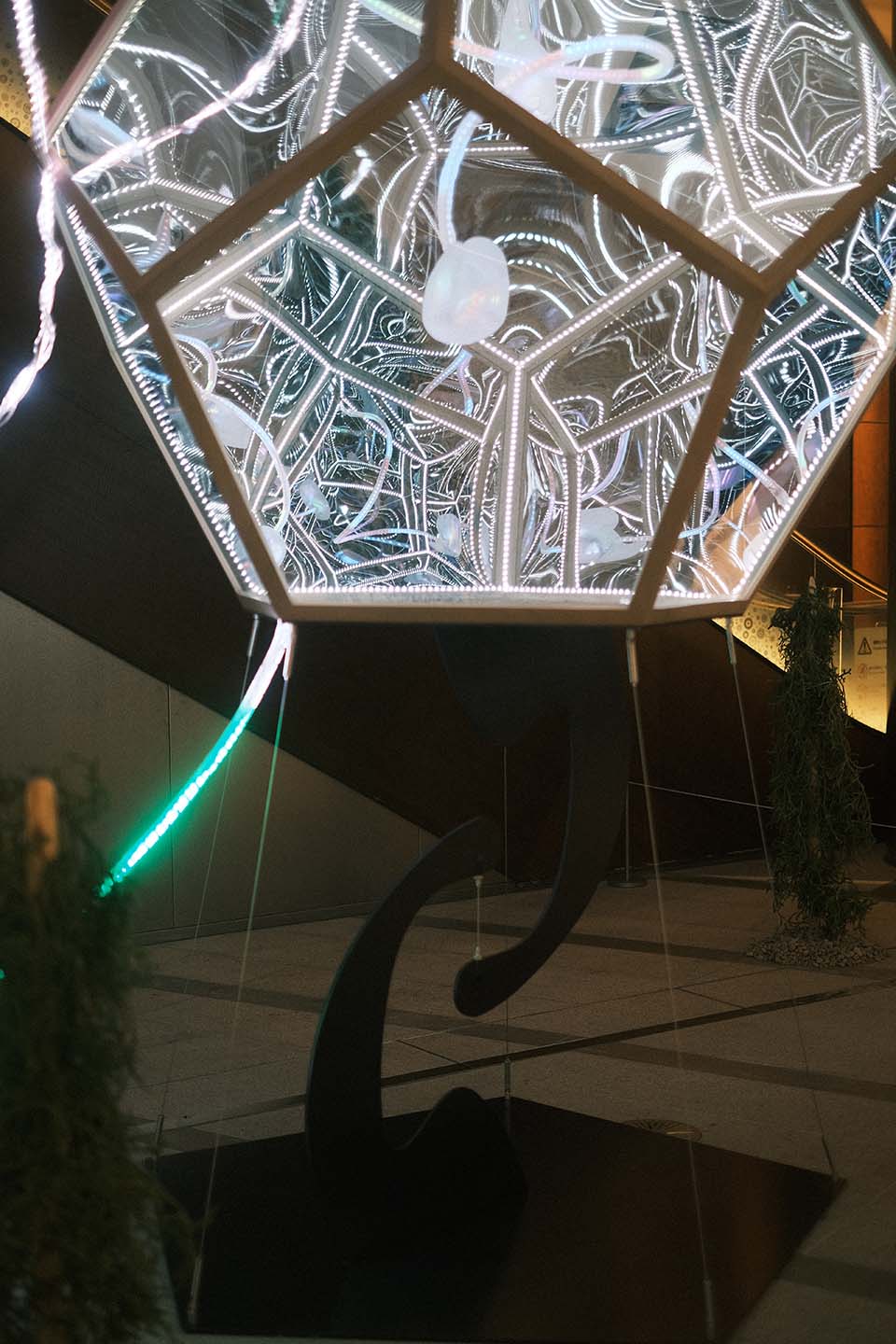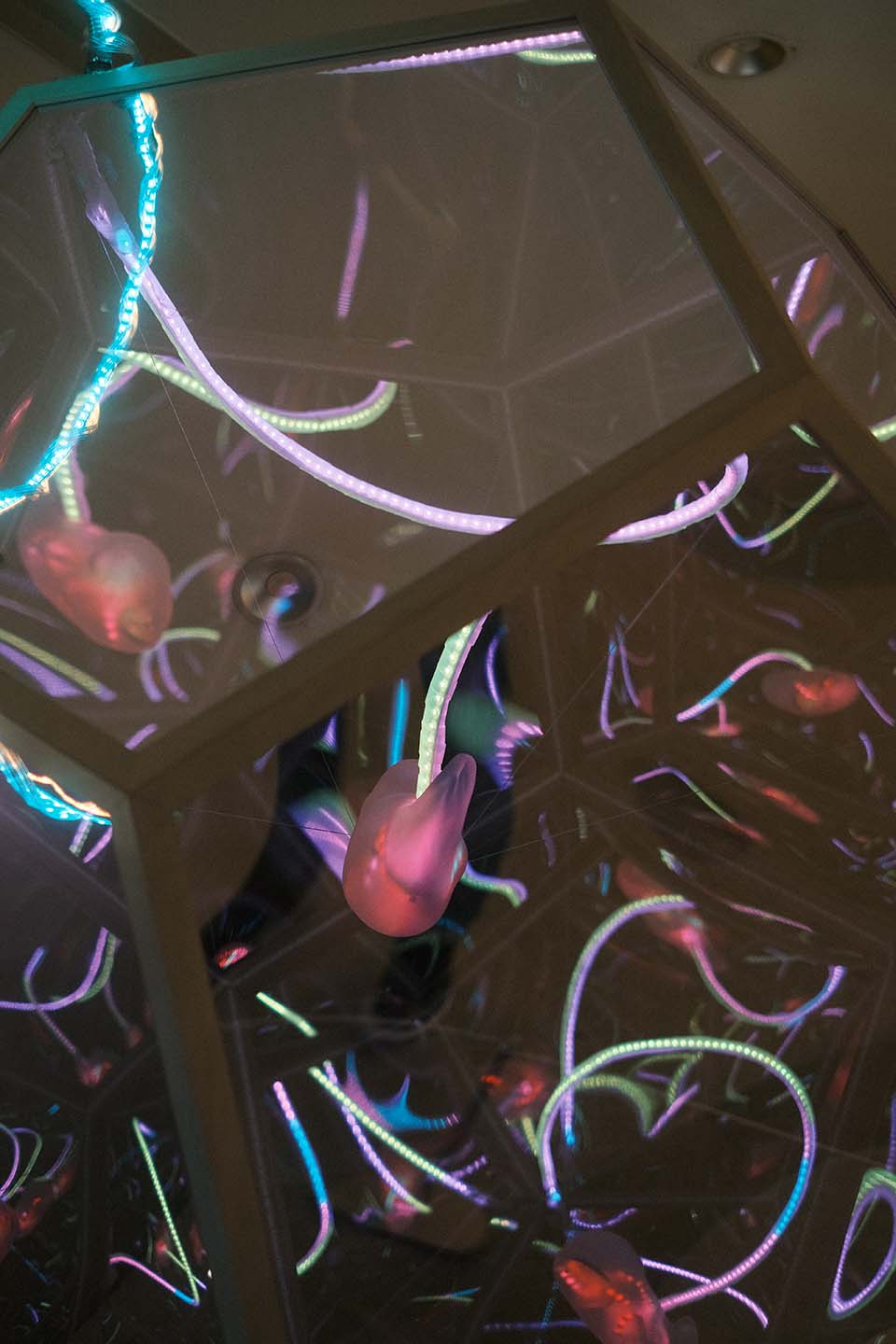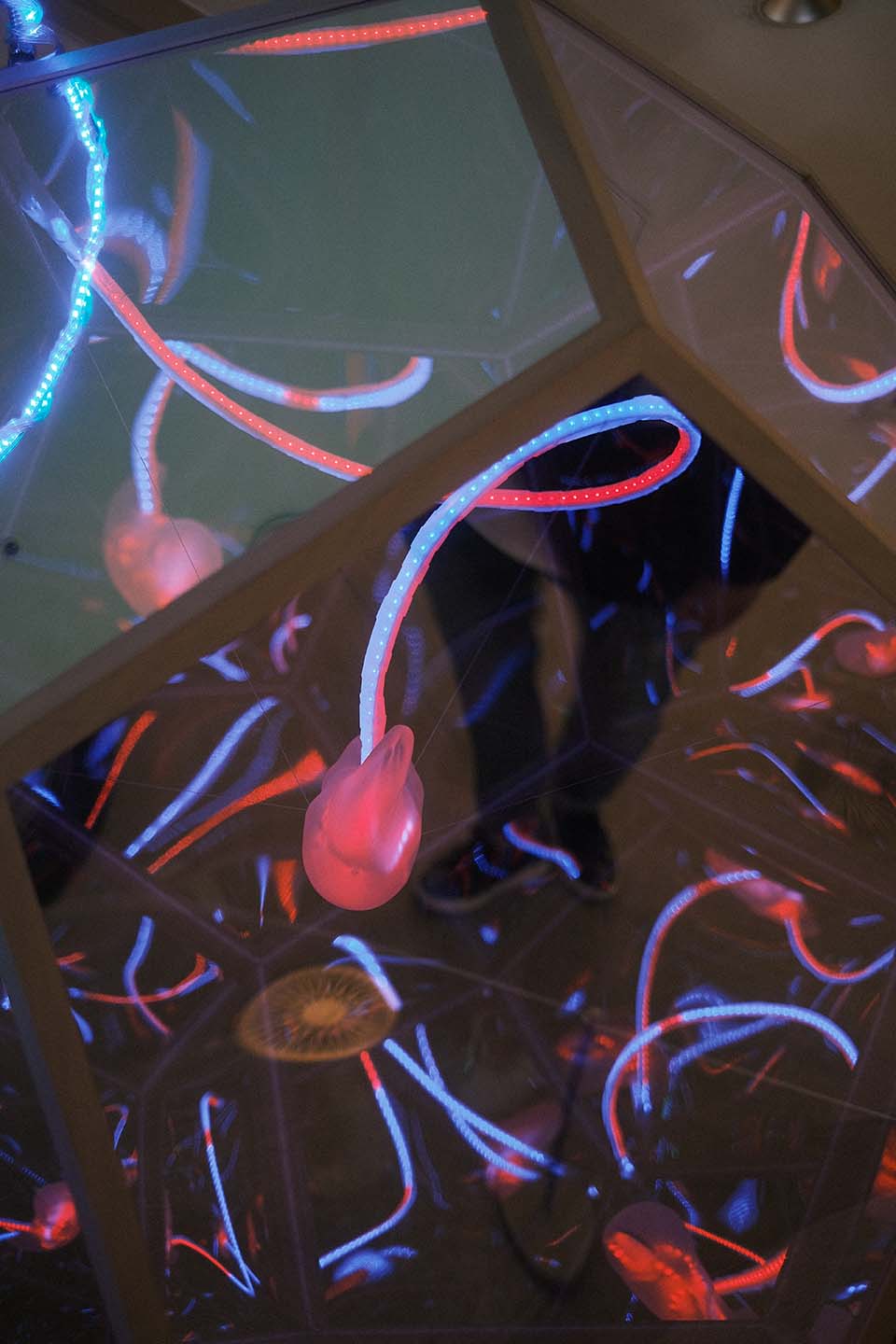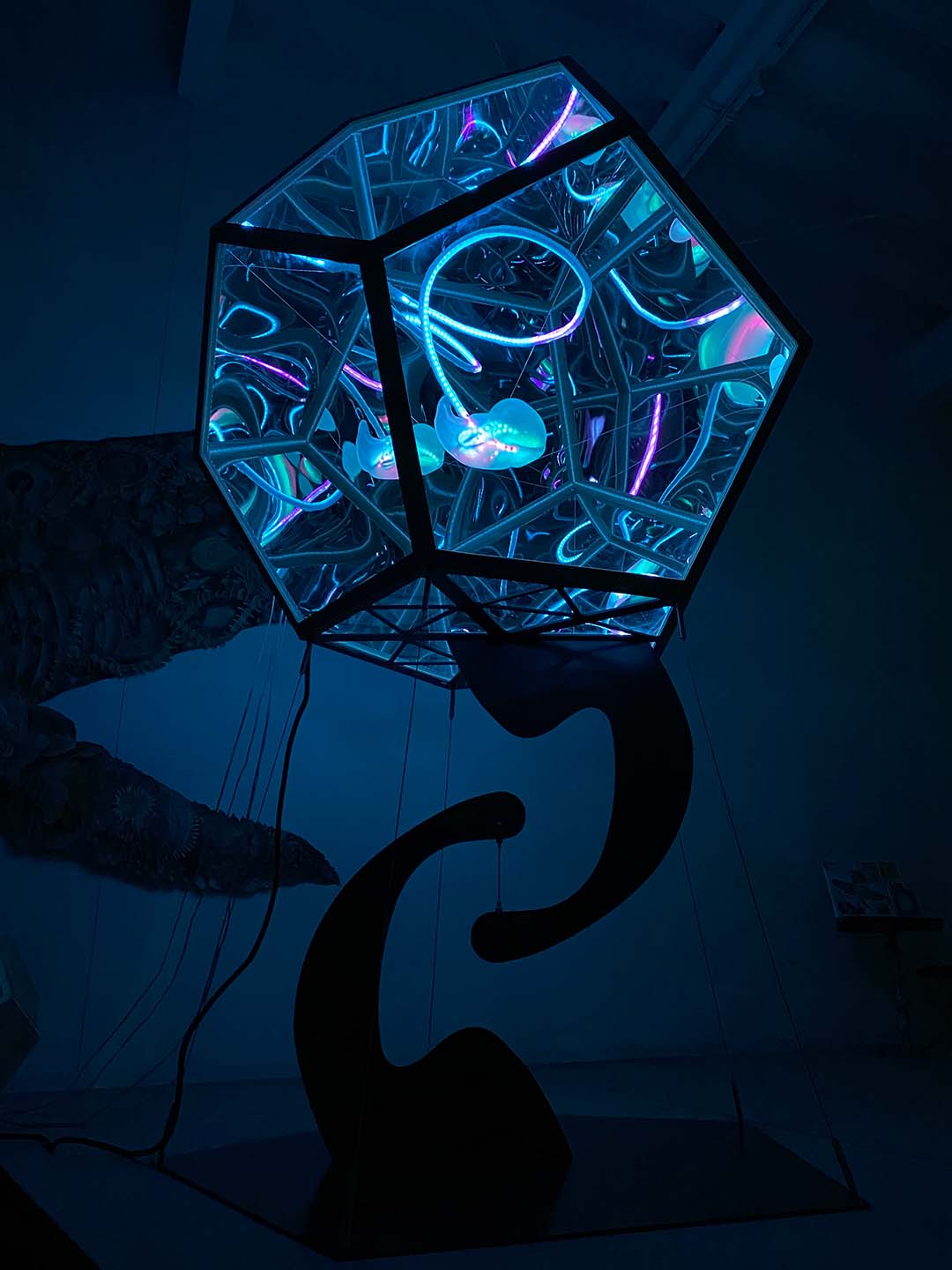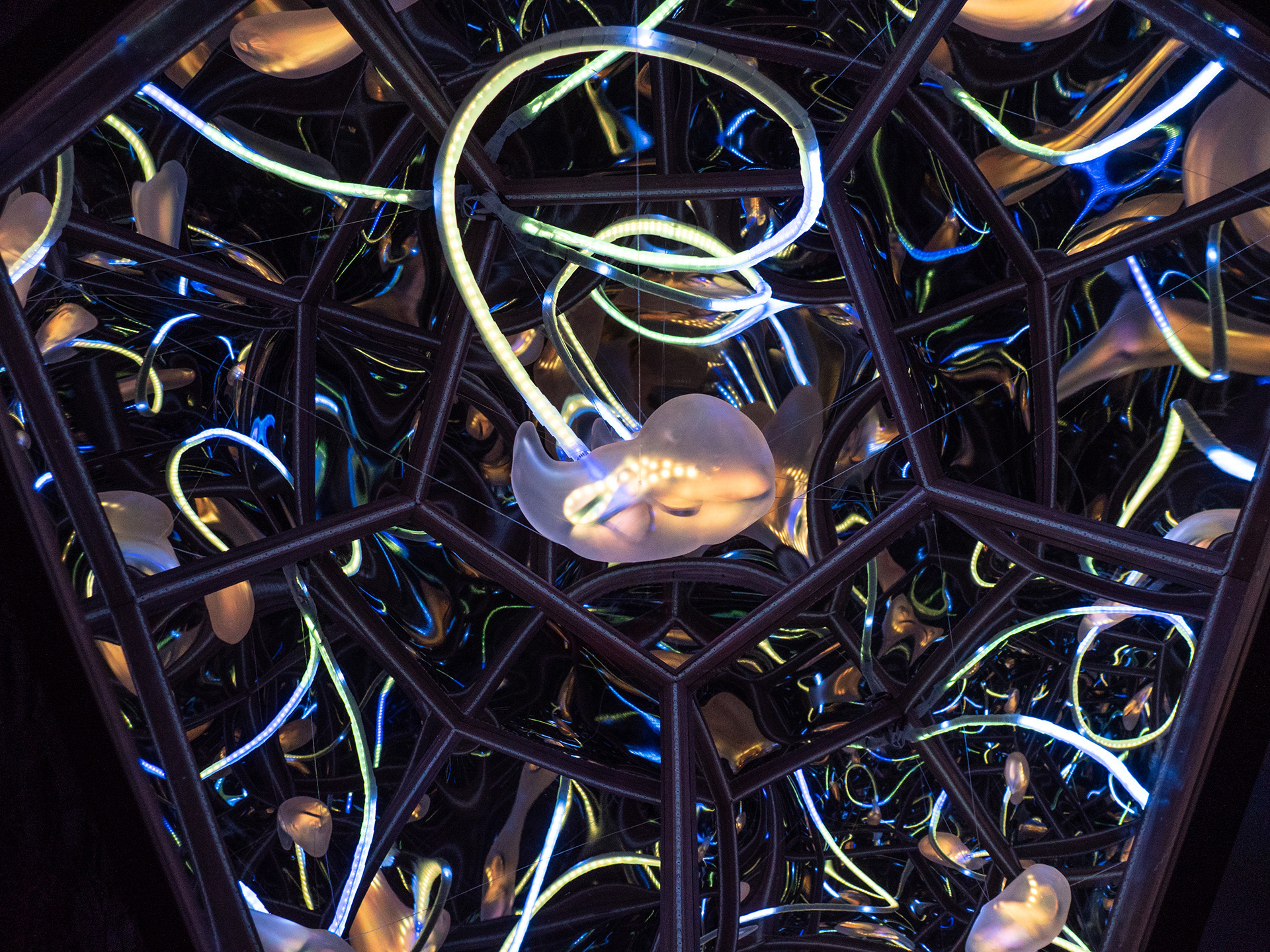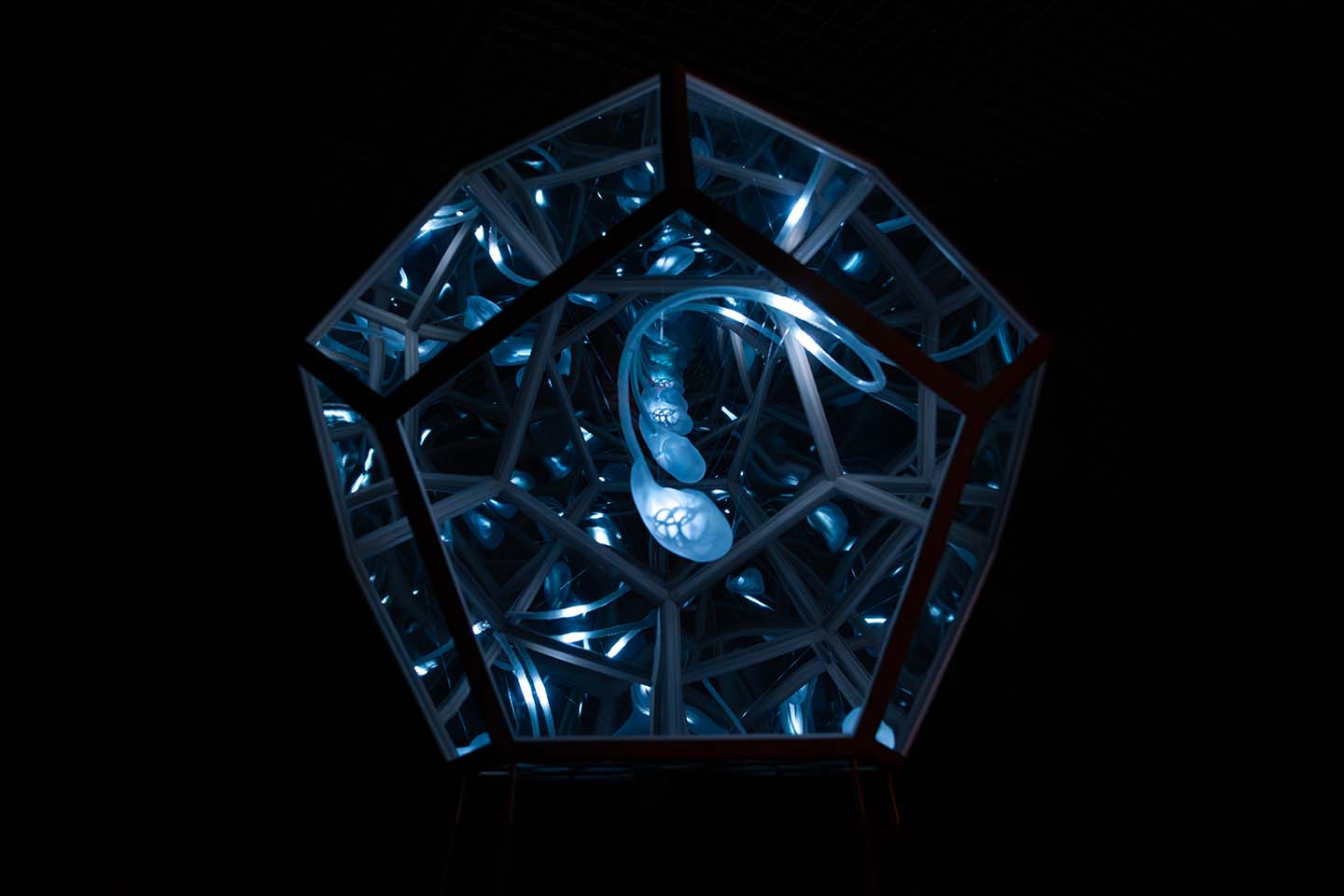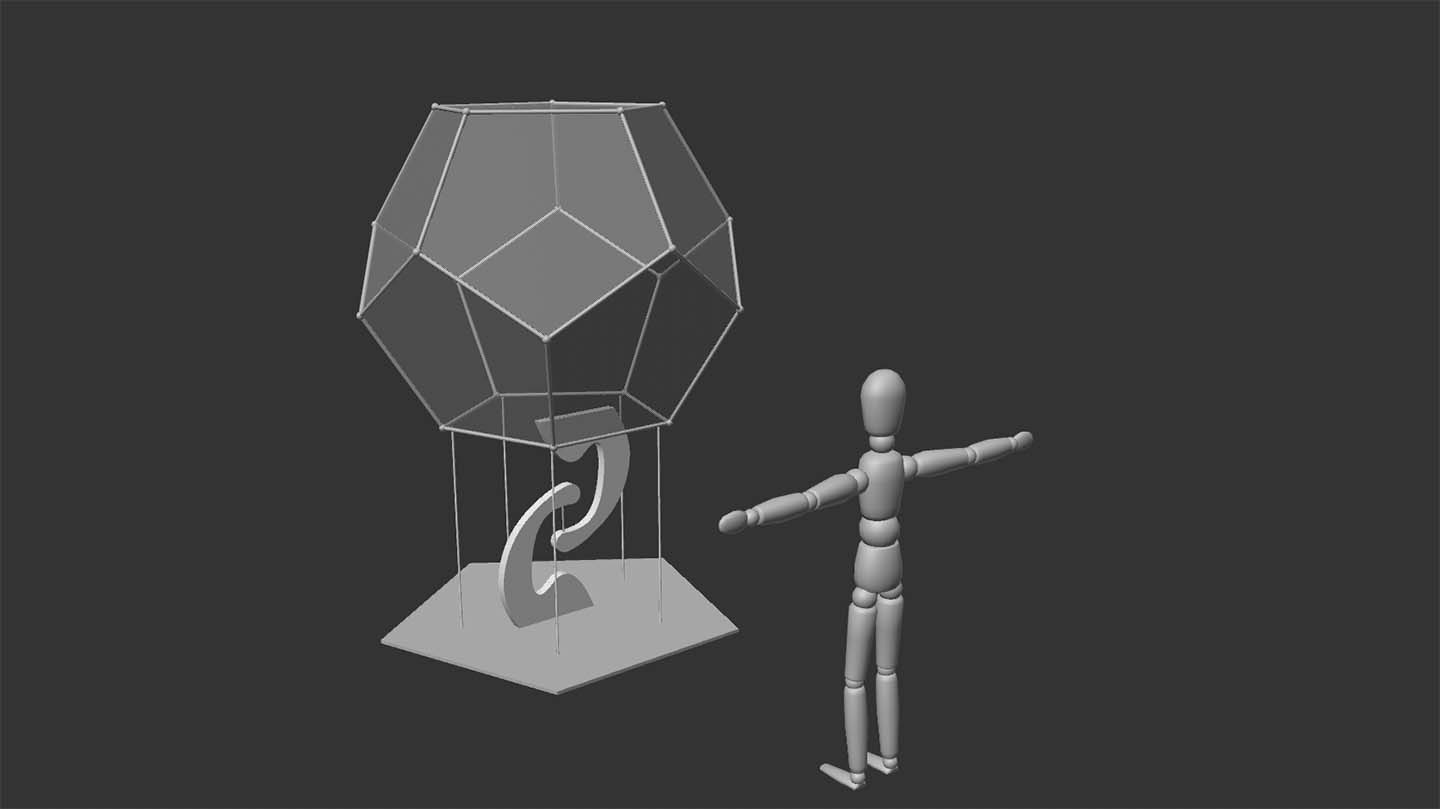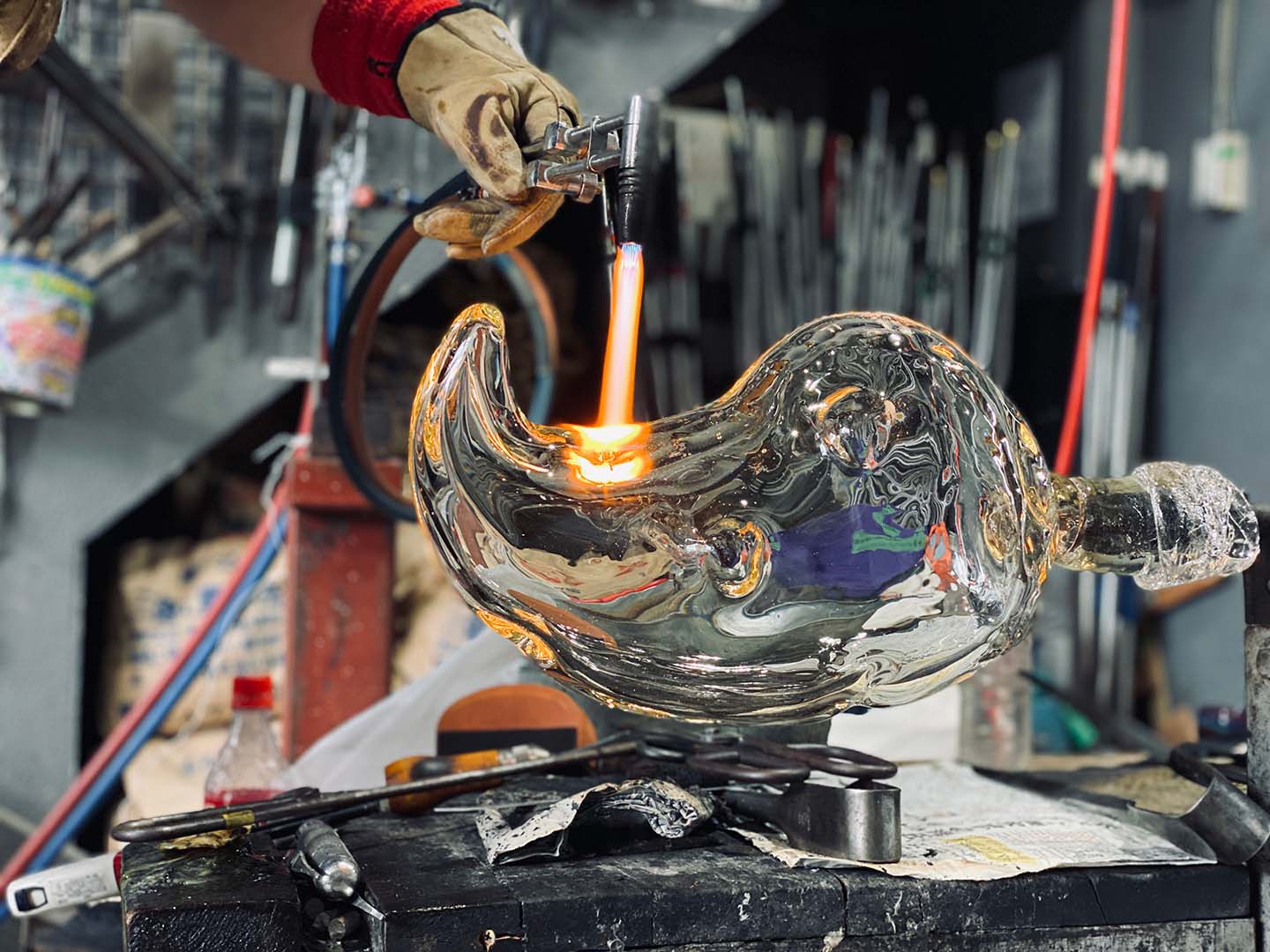S H U K U
2023 , Exhibition
Maki Ohkojima + Maquis
Roppongi Art night 2023
Exhibition "A thousand Dear Head", Chofu City Cultural Hall Tazukuri, Tokyo,
Installation view
Text: S H U K U
About SHUKU
There are many peculiar gods in Japan whose origins remain uncertain.
The deity known as Shuku since ancient times, comes from a lineage of such strange gods.
Although usually called "Shuku," in fact, Shuku has never been known by that exact name alone. Shuku has also been called Suku, Saku, Sago, Shaku, Shaguji or Shamoji.
Shuku is also known to have changed its shape and appearance flexibly.
At one time, Shuku inhabited a stone and was worshiped as a god of fortification, guarding the boundaries of villages.
At other times, Shuku resided in a strange statue from abroad and was worshiped as the ancestral god of the Sarugaku (ancient form of Japanese theater) performers at the back door of a temple. At other times, Shuku was regarded as the god of wine and grain, the god of dragons, snakes, boars, and deer, the god of spores and fetuses, and was believed to reveal his generative powers through the bodies of consecrated children.
Shuku is restless, ever-changing, and queer. Shuku has continued to come and go between all things, changing its name, form, and spiritual nature according to the times and places. It is not clear whether it is a male or female deity, or even whether it is an animal or plant god. It is as if Shuku is a god whose true nature is that his true identity is not yet known, that he is still a nobody.
This time, we are planning to install a dwelling place for the contemporary Shuku at the crossroads of the shopping street in Roppongi Hills, where countless people come and go in the heart of Tokyo. If a new divine object were to be established in today's city, we thought the
the unpredictable nature of Shuku would be fitting. We might also recognize our own inverted mirror image in Shuku's unpredictability and non-being, as we are constantly demanded to be something specific, and are incessantly striving to be something.
Shuku, as suggested by its various written forms, is a deity that 'dwells', 'creates', 'protects', and also 'celebrates'. As French philosopher Georges Bataille aptly suggests, an individual living in discontinuity returns to the lost continuity—the state of non-being—in the dizziness brought
about by the exhaustion of the festival. Roppongi is one of the cities in Japan where such normalized exhaustion is fervently unfolding.*
Various materials were used in the creation of the dwelling. The object, a blinking dodecahedron illuminated by vibrant LED lights, is made of camphor wood and represents the ancient stone seat. Supporting this dodecahedron is an iron pedestal constructed using tensegrity principles, utilizing tension between multiple points, with no single center of gravity. Hovering above each face of the dodecahedron is a glass sculpture resembling a pre-differentiated embryo, creating an infinite echo of light through the use of half-mirrors. Plastic umbilical cords, resembling light tubes, connect these embryos to another dodecahedron located outside the main structure, which harbors a hidden power source. Surrounding the entire installation are four wooden pillars, covered with the evergreen fern plant known as Hikage no Kazura, symbolizing generative power.
The oddly shaped iron pedestal shakes the viewer's perception of space. The infinite mirror of light brings both anxiety and ecstasy to those who look into it. When we catch a glimpse of Shuku's faint glimmering eyes in the depths of the chaos, the outline of "I," which we have believed to be definite, is suddenly torn apart and begins to drift aimlessly between all things.
*By the way, the word "market" in ancient times referred not only to a place of goods exchange but also to a boundary between this world and the otherworld, a place of spirit translocation. This is clearly demonstrated by the fact that the Japanese word "ichi" (market) also means "shrine maiden." The transfer of ownership of goods involves the movement of the gods attached to those goods. The market was a place where spirits, ancestral spirits, and object deities constantly intermingled, where people sang, danced, engaged in intimate acts, and exchanged various goods—a realm of wild revelry and dance without affiliation or ownership. Perhaps there is no other place more suitable than a market to await the arrival of Shuku.
Credit
"SHUKU" is the work of Maquis, an artist group of indeterminate membership consisting of Maki Ohkojima, Yosuke Tsuji, and Muneaki Donald Kuyama. In addition to Ryuhei Moriyama, Keikiyo Takemata (wood and lacquer work), Rafael Zarazua (glass), Masahiro Murayama | Ichi-tou-ba-yami (decorative advisor) and San-ei Ironworks is participating in the production of the ironwork.
Making
Video archive
Other Works
←Archives© 2026 Maki Ohkojima

